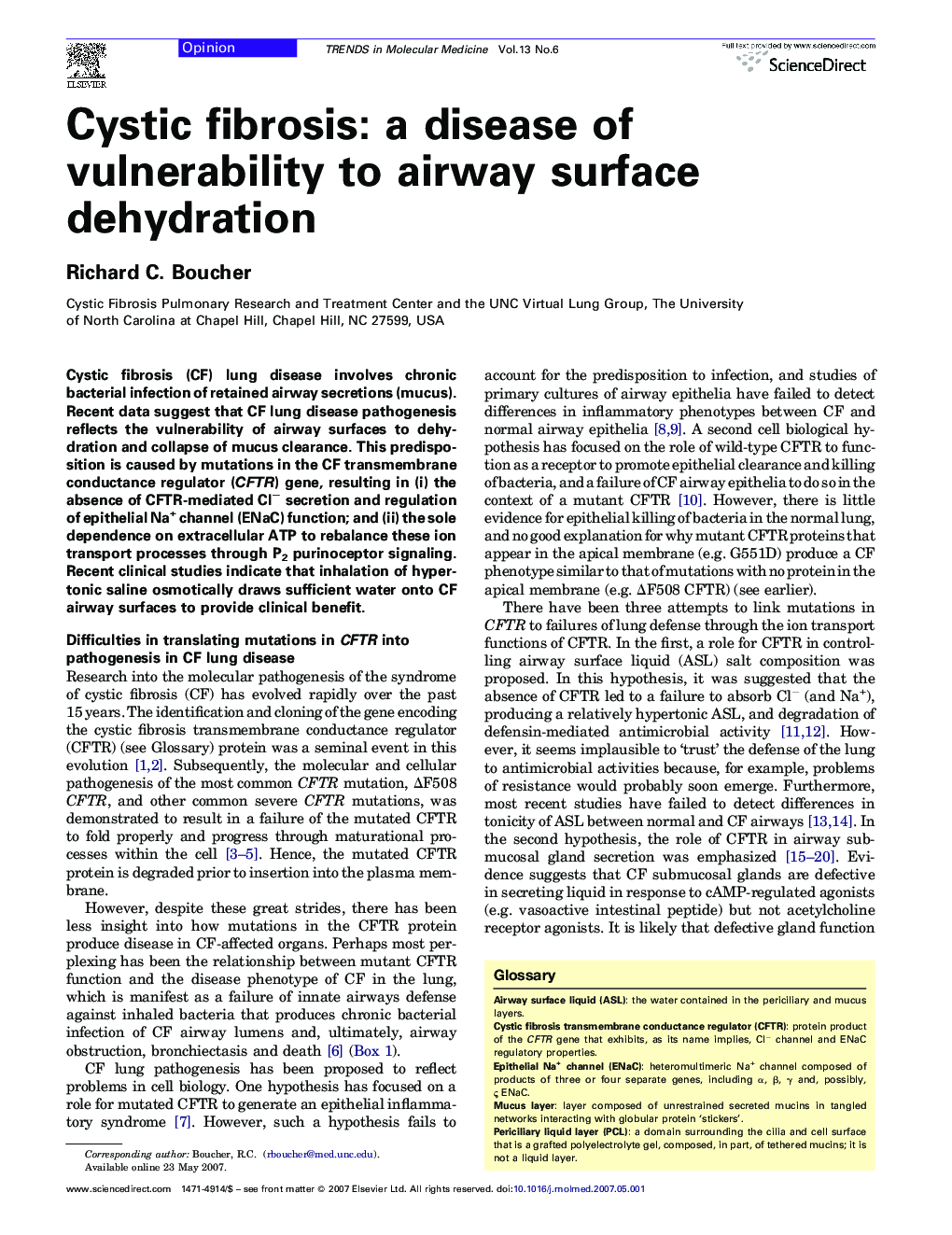| Article ID | Journal | Published Year | Pages | File Type |
|---|---|---|---|---|
| 2839395 | Trends in Molecular Medicine | 2007 | 10 Pages |
Cystic fibrosis (CF) lung disease involves chronic bacterial infection of retained airway secretions (mucus). Recent data suggest that CF lung disease pathogenesis reflects the vulnerability of airway surfaces to dehydration and collapse of mucus clearance. This predisposition is caused by mutations in the CF transmembrane conductance regulator (CFTR) gene, resulting in (i) the absence of CFTR-mediated Cl− secretion and regulation of epithelial Na+ channel (ENaC) function; and (ii) the sole dependence on extracellular ATP to rebalance these ion transport processes through P2 purinoceptor signaling. Recent clinical studies indicate that inhalation of hypertonic saline osmotically draws sufficient water onto CF airway surfaces to provide clinical benefit.
